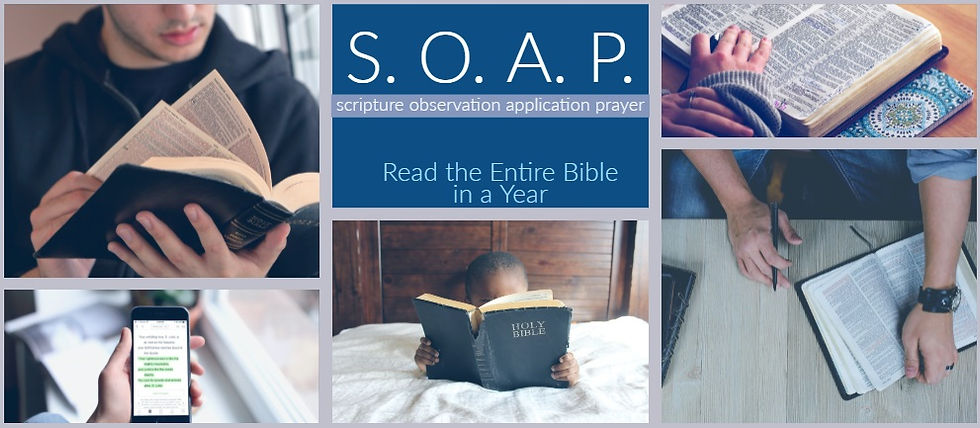September 24 – Love Drives Out Hate
- Pastor Joseph Britain
- Sep 23, 2019
- 3 min read
There is a disturbing trend in our society that is stifling discussion of legitimate issues and polarizing the country. We, as a society, have decided that it’s important to label anyone who disagrees with us on certain subjects as “haters.” Not only does that type of label stop any chance of dialogue, it makes people with differences of opinions on beliefs that often stem from religious understanding instant enemies. Instead of describing people who have a passionate dislike of certain people and wanting the worst for them, this labeling turns those who disagree into mortal enemies. A person who disagrees with me on my religious beliefs might now claim that I have drunk the “haterade.”
How ridiculous has this labeling become? At one point, Dr. Ben Carson, an amazing neurologist who is black, was put on a list, for a short time, of Nazis and white supremacists. Because hate has become political, it seems that these lists, designed to warn people originally about groups that trafficked in hate, have become lists of people that we disagree with. As Dr. Martin Luther King, Jr. reminded us, “Darkness cannot drive out darkness; only light can do that. Hate cannot drive out hate; only love can do that.” He was, of course, echoing biblical themes that have existed for almost 2000 years. “Yet I am writing you a new command; its truth is seen in him and in you, because the darkness is passing and the true light is already shining. Anyone who claims to be in the light but hates a brother or sister is still in the darkness.” (1 John 2:8-9)
Sometimes it’s hard for me to believe that hatred existed in the early church. After all, the early church was perfect. Well, except for the Corinthians, and maybe the Galatians. Ok, so the Thessalonians weren’t perfect either. Still, hatred among brothers and sisters in Christ. Maybe it was a class division in the church that caused hatred: rich vs. slave. Maybe it was ethnic: Jew vs. Gentile. Perhaps it was Roman vs. non-Roman. Whatever the cause, there was a problem of hate in the church. Hate is not a Christian value. John put it in terms of darkness and light: if you hate others, especially brothers and sisters, you are living in darkness. If you really want to live in the light, you need to love each other. Ok, I’m going to be the first to admit that not all Christians are easy to love. I know that because I know my faults and my sins. I’m sure that some of the early Christians might have been hard to love as well – but John makes it clear that the dividing line for Christians to live in the light is loving our brothers and sisters in Christ.
I must admit that sometimes I have a hard time loving all my Christian brothers and sisters. When I see people who call themselves Christians showing hate for other Christians, my blood boils. As much as they deserve my hatred, though, I’m reminded by John and other writers of the New Testament that God loves these people also. And so, I love them. I’m reminded also that I don’t always know if a person really is a brother or sister in Christ. Sometimes there are indications that someone is a Christian, but they would tell you that they don’t follow Christ. Other times, all indications show that someone probably isn’t a Christian, and they would claim the name of Christ. There is a simple solution to deal with that confusion: love everyone. “Some people have terrible lifestyles, though!” God loves them in the midst of their sin. “Some of those people would put me on their list of haters, though.” Laugh at them by showing them the love of Jesus. It’s possible that I might make a mistake and extend God’s love and grace to someone I shouldn’t. I’ve been burned before. But, since I’ve been called to act like Jesus in this world, I’m gonna keep trying to love the people that He loves and went to the cross for.
Lord, help me to love others even when they don’t deserve it, as I remember how much You loved me when I didn’t deserve it.
Daily Devotion by Bob James https://dailyenduringtruth.com/https://www.amazon.com/Daily-Enduring-Truth-January-February/dp/1983973955

Comments